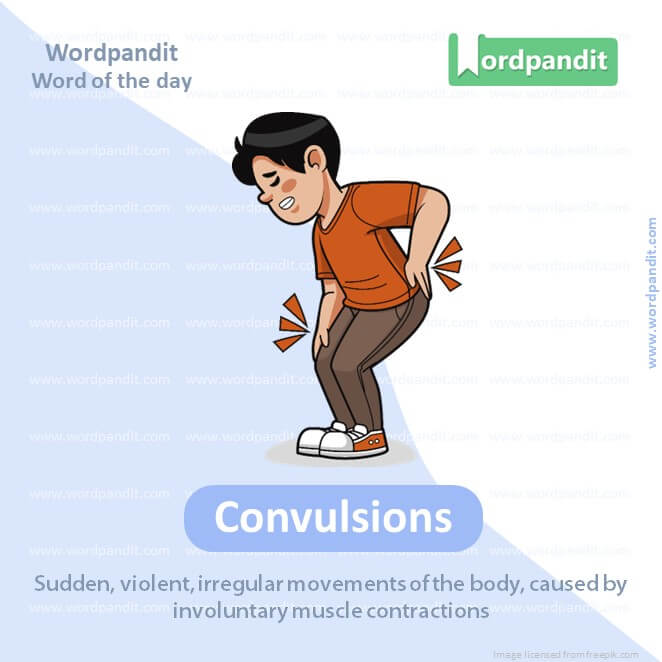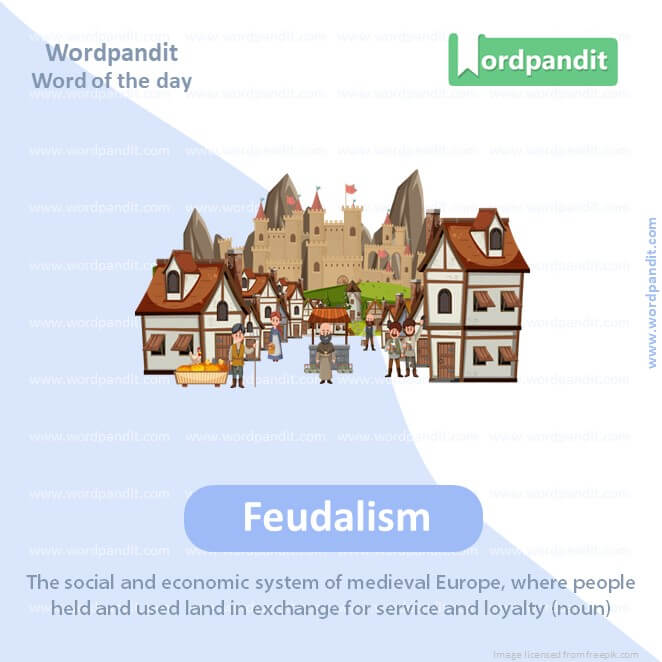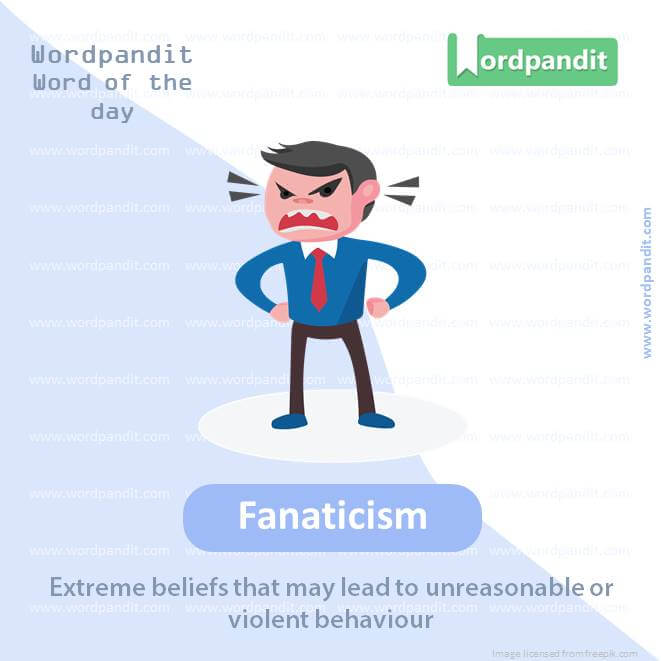Daily Vocabulary Words: List of Daily Used Words in Leading International Newspapers
Hi there. Welcome to this special section @ Wordpandit.
Our endeavour here is very simple: to highlight important daily vocabulary words, which you would come across in leading newspapers in the country. We have included the following newspapers in our selection:
• The New York Times
• The Washington Post
• Scientific American
• BBC
• The Guardian
• Psychology Today
• Wall Street Journal
• The Economist
We are putting in extensive work for developing your vocabulary. All you have got to do is be regular with this section and check out this post on a daily basis. This is your repository of words that are commonly used and essentially, we are posting a list of daily used words. Hence, this has significant practical application as it teaches you words that are used commonly in leading publications mentioned above.
Visit the website daily to learn words from leading international newspapers.

WORD-1: Decadence
CONTEXT: it speaks to the ways that the developed world today feels stuck in a loop of decadence and disappointment and sterile repetition, from which (some) people look upward and outward in search of hope
SOURCE: New York Times
EXPLANATORY PARAGRAPH: Imagine a huge, fancy cake with lots of layers and decorations, more than you could ever eat or even need. This cake is so over-the-top that it’s way too much. “Decadence” is when things are so fancy and excessive that it’s almost too much, like having too much of a good thing to the point where it’s not good anymore.
MEANING: The act or process of falling into an inferior condition or state; deterioration; decay
PRONUNCIATION: DEK-uh-dence
SYNONYMS: Excess, Luxury, Indulgence, Degeneration, Corruption
USAGE EXAMPLES:
1. The decadence of the royal banquet was evident in the lavish spread of food and gold decorations.
2. Critics argue that society’s decadence is due to its constant pursuit of pleasure.
3. The ancient empire’s fall was attributed to its own internal decadence.
4. His lifestyle of decadence eventually led to financial ruin.
WORD-2: Spanning
CONTEXT: the novel, somewhat more clearly than its adaptation, presents a galaxy-spanning society that has wrestled with each of these possibilities and made very concrete choices, such that its civilization is defined by how it embraces, rejects or adapts to each of the forms of dynamism I’ve just listed.
SOURCE: New York Times
EXPLANATORY PARAGRAPH: Think about building a bridge that starts on one side of a river and stretches all the way to the other side. “Spanning” is like that bridge because it means to stretch from one point to another, covering a distance or period of time.
MEANING: Extending across or covering a period of time or space (verb).
PRONUNCIATION: SPAN-ing
SYNONYMS: Covering, Extending over, Bridging, Reaching across, Encompassing
USAGE EXAMPLES:
1. The bridge is spanning the wide river, connecting the two towns.
2. Her career spanning several decades has been incredibly diverse.
3. The study is spanning a range of topics from history to science.
4. The exhibition spans three floors of the museum.

WORD-3: Convulsion
CONTEXT: the engine of this civilization’s development and spread. A.I., on the other hand, has been invented, embraced and then explicitly rejected through the long-ago convulsion called the “Butlerian Jihad,” which establishes as a commandment.
SOURCE: New York Times
EXPLANATORY PARAGRAPH: Imagine if your whole body started shaking all by itself, and you couldn’t stop it, like when you’re really cold and shiver, but much stronger. “Convulsion” is a medical word for when your body shakes uncontrollably because of illness or something wrong inside your body.
MEANING: Sudden, violent, irregular movements of the body, caused by involuntary muscle contractions
PRONUNCIATION: kuhn-VUL-shun
SYNONYMS: Seizure, Spasm, Fit, Tremor, Shudder
USAGE EXAMPLES:
1. The patient suffered a convulsion and required immediate medical attention.
2. During the fever, she experienced brief convulsions.
3. The earthquake felt like a convulsion of the ground beneath their feet.
4. The news caused a convulsion in the financial markets.
WORD-4: Hedged
CONTEXT: the imperium’s powerful Bene Gesserit sisterhood has pursued a vast eugenic project, but one that’s hedged about with various taboos.
SOURCE: New York Times
EXPLANATORY PARAGRAPH: Think about planting a row of bushes along the edge of your yard to keep balls from rolling into the street. These bushes are like a protective barrier. “Hedged” can mean to put up a real hedge like this, but it also means to protect yourself from a loss or making a definite decision by carefully choosing your words or actions.
MEANING: To limit or qualify something by conditions or exceptions; to protect against loss (verb).
PRONUNCIATION: HEDJ-d
SYNONYMS: Safeguarded, Protected, Surrounded, Fenced, Circumvented
USAGE EXAMPLES:
1. She hedged her bets by investing in diverse stocks.
2. In the interview, he hedged his answers, avoiding a direct commitment.
3. The garden was hedged to provide privacy.
4. Investors hedged their portfolios against potential losses.
WORD-5: Recoils
CONTEXT: she recoils from the idea, since “no word or deed could imply that men might be bred on the level of animals.
SOURCE: New York Times
EXPLANATORY PARAGRAPH: Imagine touching something very hot by accident, and you quickly pull your hand back because it hurts. “Recoils” means to suddenly move back or jump away from something because it’s scary, shocking, or painful.
MEANING: To suddenly spring or flinch back in fear, horror, or disgust (verb).
PRONUNCIATION: ree-KOYLS
SYNONYMS: Flinches, Withdraws, Shrinks, Retreats, Balks
USAGE EXAMPLES:
1. She recoils at the sight of blood.
2. The audience recoiled in horror during the scary movie.
3. He recoiled from the hot stove to avoid getting burned.
4. The cat recoils when it hears a loud noise.
WORD-6: Flourished
CONTEXT: religion has flourished in this spacefaring future via a kind of syncretistic creativity.
SOURCE: New York Times
EXPLANATORY PARAGRAPH: Imagine a plant that starts off small and then grows big, wide, and healthy because it’s in just the right spot with plenty of sun and water. “Flourished” means to grow or develop in a healthy or vigorous way, like the plant that’s thriving.
MEANING: To grow or develop in a healthy or vigorous way, especially as the result of a particularly favorable environment (verb).
PRONUNCIATION: FLUR-ishd
SYNONYMS: Thrived, Prospered, Bloomed, Burgeoned, Succeeded
USAGE EXAMPLES:
1. The business flourished under her management.
2. In the right conditions, these plants flourish and produce beautiful flowers.
3. The artist flourished in the creative atmosphere of the city.
4. With proper care, the puppy flourished and became a healthy dog.

WORD-7: Feudalism
CONTEXT: a stable but cruel order based on corporate feudalism, religious manipulation and other interlocking exploitations.
SOURCE: New York Times
EXPLANATORY PARAGRAPH: Imagine living in a time when kings and queens ruled the land, and knights protected people. The people who worked the land had to give a part of what they grew to their protectors. “Feudalism” is the name for this system, where land is owned by lords and worked by people who owe them loyalty and work in exchange for protection.
MEANING: The social and economic system of medieval Europe, where people held and used land in exchange for service and loyalty (noun)
PRONUNCIATION: FYOO-duh-liz-um
SYNONYMS: Manorialism, Serfdom, Vassalage, Lordship, Knightage
USAGE EXAMPLES:
1. Feudalism was a dominant social system in medieval Europe.
2. The castle was a symbol of feudalism and its hierarchical structure.
3. Under feudalism, peasants worked the land for the lords.
4. The decline of feudalism led to the rise of modern nation-states.

WORD-8: Fanaticism
CONTEXT: the only path out of a corrupt status quo involves convulsion and fanaticism and death.
SOURCE: New York Times
EXPLANATORY PARAGRAPH: Imagine someone loves their favorite superhero so much that they talk about them all the time, wear costumes every day, and even decorate their whole room to look like the superhero’s home. They believe this superhero is the best and won’t listen to anyone who thinks differently. This kind of super, super big love for something, where someone won’t change their mind or listen to others, is what “fanaticism” means. It’s when liking something a lot turns into being way too intense or extreme about it.
MEANING: Extreme beliefs that may lead to unreasonable or violent behaviour
PRONUNCIATION: fuh-NAT-uh-siz-um
SYNONYMS: Extremism, Zealotry, Obsession, Radicalism, Fervor
USAGE EXAMPLES:
1. The debate turned heated, revealing a level of fanaticism on both sides.
2. His fanaticism about the football team led him to attend every game, no matter the distance.
3. The documentary explored the dangers of political fanaticism.
4. Despite the risks, her fanaticism drove her to scale the highest mountains.
WORD-9: Prophecy
CONTEXT: a new explosion of interstellar migration, and also to breed a line of human beings immune from prophecy and prescience.
SOURCE: New York Times
EXPLANATORY PARAGRAPH: Imagine someone who can predict what’s going to happen in the future, like telling you you’ll find a lost toy tomorrow. “Prophecy” is a message about what will happen in the future, often given by someone special who is believed to have the power to see what’s coming.
MEANING: A prediction of what will happen in the future, often given by a prophet (noun).
PRONUNCIATION: PROF-uh-see
SYNONYMS: Prediction, Forecast, Prognostication, Vision, Divination
USAGE EXAMPLES:
1. The prophecy foretold the coming of a great leader.
2. Many people did not believe the prophecy until it came true.
3. The ancient texts contain prophecies about the end of the world.
4. She claimed to have a prophecy about the future of the nation.

WORD-10: Messianic
CONTEXT: this period of fanaticism and dictatorship and messianic rule was necessary to liberate humanity from still worse, potentially species-ending forms of dictatorship and messianic control.
SOURCE: New York Times
EXPLANATORY PARAGRAPH: Imagine someone believed to be a superhero who’s expected to come and save everyone, making everything perfect. “Messianic” describes the belief in a special leader, known as the Messiah, who is expected to arrive and rescue or save people in a super amazing way.
MEANING: Relating to a savior or leader who is expected to bring big, good changes (adjective)
PRONUNCIATION: meh-see-AN-ik
SYNONYMS: Redemptive, Salvational, Savior-like, Liberating, Redeeming
USAGE EXAMPLES:
1. His followers attributed messianic qualities to him, believing he could lead them to a better future.
2. The messianic prophecy spoke of a time of peace and justice.
3. Some critics argue that such messianic expectations place too much burden on one individual.
4. The leader’s messianic vision inspired many to join his cause.
Vocabulary Pronunciation
The dance of language learning comprises two inseparable partners: vocabulary and pronunciation. The rhythm of this dance is best enjoyed when both partners are in sync. Essentially, mastering ‘vocabulary pronunciation’ is key to expressing and understanding a language effectively. However, what is the ideal approach to learn ‘vocabulary pronunciation’?
Firstly, the process of learning ‘vocabulary pronunciation’ isn’t a sprint. Rather, it’s a marathon where consistency is vital. A gradual and steady pace of learning new words and their pronunciation offers enough time to effectively practice and commit them to memory.
Secondly, to master ‘vocabulary pronunciation’, go beyond written text. Dwell in the world of audible language, such as documentaries, podcasts, music, or language-learning apps that provide pronunciation guides. These memorable auditory experiences aid in refining your ‘vocabulary pronunciation’ and offer a glimpse into the authentic sounds of the language.
Another beneficial strategy for learning ‘vocabulary pronunciation’ involves the use of phonetic transcriptions. They offer systematic approaches to understanding the sound system of a language, thereby improving pronunciation.
Most importantly, do not shy away from practicing your ‘vocabulary pronunciation’. Be it in a language exchange meeting, a conversation with a native speaker, or even a self-recording session, active verbalization massively boosts your pronunciation prowess.
Lastly, always remember to train your ears as much as you train your tongue. Listening carefully to native speakers helps you capture the subtleties of ‘vocabulary pronunciation’, contributing to better delivery when you speak.
In conclusion, mastering ‘vocabulary pronunciation’ is not an overnight journey. It’s a process of intentional practice, sustained listening, conscientious reflection and active usage. As you chart this course with diligence and patience, you will witness your ‘vocabulary pronunciation’ skills blossom, leading you to communicate with greater fluency and confidence.













